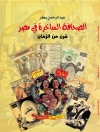Current anxiety about the future of news makes it opportune to revisit the notion of professionalism in journalism. Media expert Silvio Waisbord takes this pressing issue as his theme and argues that “professional journalism” is both a normative and analytical notion. It refers to reporting that observes certain ethical standards as well as to collective efforts by journalists to exercise control over the news. Professionalism should not be narrowly associated with the normative ideal as it historically developed in the West during the past century. Instead, it needs to be approached as a valuable concept to throw into sharp relief how journalists define conditions and rules of work within certain settings. Professionalization is about the specialization of labor and control of occupational practice. These issues are important, particularly amidst the combination of political, technological and economic trends that have profoundly unsettled the foundations of modern journalism. By doing so, they have stimulated the reinvention of professionalism. This engaging and insightful book critically examines the meanings, expectations, and critiques of professional journalism in a global context.
Daftar Isi
Acknowledgments vi
Introduction 1
1 Paths to Professionalism 19
2 The Dilemmas of Professional Autonomy 43
3 The Ambiguities of Professional Journalism 73
4 Questioning Professional Journalism 94
5 The Professional Logic of Journalism 121
6 Professionalism and Media Patrimonialism 149
7 The Globalization of Professional Cultures 174
8 Post-Professional Journalism? 202
Conclusion: Reinventing Professionalism 222
References 234
Index 263
Tentang Penulis
Silvio Waisbord is professor of media and public affairs at The George Washington University and the editor-in-chief of the
International Journal of Press/Politics.












